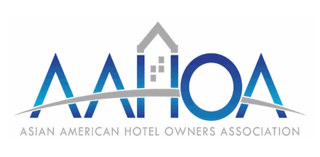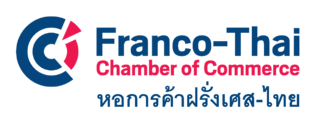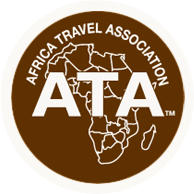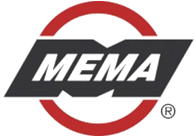Human resources (HR) is the set of people who make up the workforce of an organization, business sector, industry, or economy. A narrower concept is human capital, the knowledge and skills which the individuals command. Similar terms include manpower, labor, labor-power, or personnel.
A trade association, also known as an industry trade group, business association, sector association or industry body, is an organization founded and funded by businesses that operate in a specific industry. Through collaboration between companies within a sector, a trade association participates in public relations activities such as advertising, education, publishing and, especially, lobbying and political action. Associations may offer other services, such as producing conferences, setting industry standards, holding networking or charitable events, or offering classes or educational materials. Many associations are non-profit organizations governed by bylaws and directed by officers who are also members.. Many associations are non-profit organizations governed by bylaws and directed by officers who are also members..
National Association of Software and Service Companies (NASSCOM) is an Indian non-governmental trade association and advocacy group that primarily serves the Indian technology industry. Founded in 1988, NASSCOM operates as a nonprofit organization and serves as a key entity within the Indian technology sector.
A purchasing cooperative is a type of cooperative arrangement, often among businesses, to agree to aggregate demand to get lower prices from selected suppliers. Retailers' cooperatives are a form of purchasing cooperative. Cooperatives are often used by government agencies to reduce costs of procurement. Purchasing Cooperatives are used frequently by governmental entities, since they are required to follow laws requiring competitive bidding above certain thresholds. In the United States, counties, municipalities, schools, colleges and universities in the majority of states can sign interlocal agreements or cooperative contracts that allow them to legally use contracts that were procured by another governmental entity. The National Association of State Procurement Officials (NASPO) reported increasing use of cooperative purchasing practices in its 2016 survey of state procurement.
The Pacific Basin Economic Council (PBEC) is an independent business association founded by Weldon B. Gibson in 1967 with the objective of facilitating business in the Asia-Pacific region. It has a rich history of supporting business leaders, academics and Governments across Asia Pacific. It organises and hosts several roundtable dialogue discussions and key events annually as well as provides market intelligence, research papers & policy recommendations on behalf of the APAC business community. It advocates for sustainable & inclusive economic growth through free trade agreements under a fair international rules based system that mitigates climate change & supports societies. The International Secretariat is currently located in Hong Kong and their Chief Executive is Michael Walsh.
The Futures Industry Association (FIA) is a prominent global trade organization that represents the interests of the futures, options, and derivatives markets, including futures commission merchants and principal traders. Founded in 1955, the FIA has played a crucial role in shaping the futures industry, advocating for market participants, and fostering the growth of these markets worldwide. With a diverse membership comprising exchanges, clearinghouses, trading firms, banks, and other industry stakeholders, the FIA acts as a unified voice for the futures industry.
The Retail Motor Industry Federation (RMI) represents the interests of motor industry operators in England, Wales, Northern Ireland and the Isle of Man providing sales and services to motorists and businesses. It does not represent businesses in Scotland, which are represented by the independent Scottish Motor Trade Association.
The UK Cinema Association (UKCA), formerly known as the Cinema Exhibitors Association, is the national trade association for cinema operators in the United Kingdom. The UKCA represents the interests of well over 90 per cent of UK cinema operators by number and market share.
The American Council for an Energy-Efficient Economy (ACEEE) is a nonprofit, 501(c)(3) organization. Founded in 1980, ACEEE's mission is to act as a catalyst to advance energy efficiency policies, programs, technologies, investments, and behaviors in order to help achieve greater economic prosperity, and environmental protection.

Promotional merchandise are products branded with a logo or slogan and distributed at little or no cost to promote a brand, corporate identity, or event. Such products, which are often informally called promo products, swag, tchotchkes, or freebies, are used in marketing and sales. They are given away or sold at a loss to promote a company, corporate image, brand, or event. They are often distributed as handouts at trade shows, at conferences, on sales calls, and as bonus items in shipped orders. They are often used in guerrilla marketing campaigns.
Advocacy groups, also known as lobby groups, interest groups, special interest groups, pressure groups, or public associations, use various forms of advocacy or lobbying to influence public opinion and ultimate public policy. They play an important role in the development of political and social systems.

A commercial policy is a government's policy governing international trade. Commercial policy is an all encompassing term that is used to cover topics which involve international trade. Trade policy is often described in terms of a scale between the extremes of free trade on one side and protectionism on the other. A common commercial policy can sometimes be agreed by treaty within a customs union, as with the European Union's common commercial policy and in Mercosur. A nation's commercial policy will include and take into account the policies adopted by that nation's government while negotiating international trade. There are several factors that can affect a nation's commercial policy, all of which can affect international trade policies.

The Asian American Hotel Owners Association (AAHOA) is a trade association that represents hotel owners. As of 2022, AAHOA has approximately 20,000 members who own about 60% of the hotels in the United States. AAHOA provides service and support for hoteliers through its educational offerings, policy and political advocacy for the interests of hotel owners, opportunities for professional development, and community engagement.

The American Bus Association (ABA) serves as a trade association for motorcoach operators and tour companies operating in the United States and Canada. With its headquarters situated in Washington, D.C., the association has a membership comprising approximately 1,000 companies engaged in bus operations or bus-based tours, alongside around 2,800 organizations representing the broader travel and tourism industry. Additionally, several hundred suppliers of buses and related products and services are affiliated with the ABA.

Founded in 1966 by French entrepreneurs, the Franco-Thai Chamber of Commerce (FTCC) is today one of the European chambers in Thailand with over 315 members, with business interests in France and Thailand, and more than 60 events organized every year.

Africa Travel Association (ATA) is a non-profit international travel industry trade association established in 1975.

The Motor & Equipment Manufacturers Association (MEMA) was founded in 1904. MEMA represents more than 1,000 companies that manufacture motor vehicle components and systems for the original equipment and aftermarket segments of the light vehicle and heavy-duty motor vehicle manufacturing industry in the United States. Motor vehicle component manufacturers are the largest employer of manufacturing jobs in the U.S., contributing nearly 3 percent of the U.S. gross domestic product. Motor vehicle parts suppliers generate a total direct and indirect employment impact of 4.26 million jobs, up nearly 18 percent since 2012.
Women in Technology International (WITI) is an organization promoting the achievements of women in technology and extending support, opportunities, and inspiration. It was founded by Carolyn Leighton in 1989 as the International Network of Women in Technology. It was renamed to the WITI Professional Association in 2001 when it acted as a trade association for women in technology.
The Indian Association of Amusement Parks and Industries (IAAPI) is an apex body representing the interests of amusement parks, theme parks, water parks and indoor amusement centers in India. IAAPI is a non-government, not-for-profit, industry-led and industry-managed organization, playing a proactive role in the development of this sector. Founded in 1999, IAAPI is India's premier business association having over 461 members from private sectors including small and medium enterprises consisting of park operators and equipment manufacturers. IAAPI is recognized and affiliated with various international trade bodies operating in the amusement sector.






